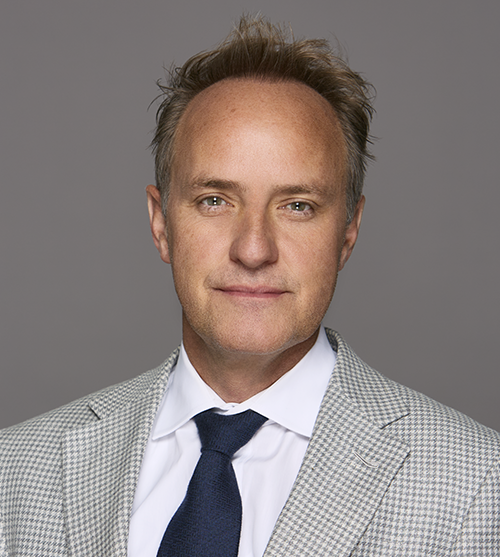In this exclusive piece, David Osborne, CEO of Caseware and former leader of Virgin Pulse, shares his key advice for professionals and entrepreneurs in FinTech seeking to accelerate their careers. From the importance of relationship-building and continuous improvement to the evolving trends in audit and accounting shaped by AI and cloud technology, Osborne offers a comprehensive guide to thriving in the fast-paced world of FinTech.

As someone who has successfully led multiple companies, including Virgin Pulse and now Caseware what key advice would you offer to professionals and entrepreneurs in FinTech who are looking to accelerate their career growth?
Prioritise relationship-building. Particularly when entering the workforce, build connections, especially with those in your immediate and cross-functional teams. Advocate for yourself while aspiring to be part of a skilled, diverse collective with shared vision and values.
Improve your weaknesses. True growth comes from addressing your shortcomings. The best golfers spend more time practicing their weaker shots than repeatedly hitting their best ones. Effective leaders recognise the importance of exploring and developing areas where they lack expertise.
Go above and beyond. Today, delivering a good work product based on what is asked is table stakes. I often tell people to consistently bring new ideas, think beyond what was asked of them, exceed expectations, consider cross-functional outcomes and deliver exceptional results. These people will always stand out for the right reasons.
The FinTech landscape is constantly evolving, with AI and cloud technologies at the forefront. What do you see as the most significant trends currently shaping the audit and accounting sectors, and how should companies adapt to these changes?
Rewind 30 years and the profession was moving from a paper-based system to electronic work papers. Now we’ve moved from electronic work papers to a collaborative cloud environment. This is just as transformational as 30 years ago. This metamorphosis of the profession, occurring against the backdrop of technology transformation, is fascinating to play a part in.
The audit has not materially changed since the 1930’s. The Dynamic Audit Solution (DAS), created by auditors for auditors, driven by the AICPA and CPA.com and built on the Caseware Cloud platform, is mobilising the audit evolution. It’s the perfect storm when you consider those working in the space today are wholly different from those in the profession two to three decades ago.
Today’s experts are creative, curious and adventurous. They’re tech enthusiasts, intelligent leaders, and innate problem-solvers who are inspired to be a part of the transformation of the audit.
Companies are adapting to these changes by hiring these types of people and looking for skill sets they haven’t sought out in the past. Companies need to prepare for the inevitability of transformation through change management practices and moving away from traditional personas.
On the flip side, not all trends deliver on their promises. Are there any tech trends you believe are overhyped or unlikely to support sustainable growth in the industry? What should companies be cautious about when adopting new technologies?
Prioritise change management when considering new technology adoption. Leaders need to understand and articulate the anticipated return on investment and act as ambassadors for the change by leading from the top throughout. It’s also critical to remind your employees of the rationale for the change. Make sure everyone is bought in and to be open to discussing any concerns.
When leaders get this right, the benefits are incredible. When colleagues champion and embrace new technology from the outset, your people have great tools to work with and you can attract forward-thinking, tech-savvy talent to your organisation.
Transforming a company like Caseware to achieve record-breaking growth must have come with its share of challenges. Could you share some of the biggest obstacles you faced during this transformation and how you managed to overcome them?
After I joined Caseware, we bought seven of our distributors, moving from an indirect to a direct GTM model around the world. The goal was to bring these distributors into the Caseware family, operationalise their businesses and drive faster growth.
Acquisitions can be fraught with challenges around cultural and operational integration, morale, regulatory hurdles and customer retention. We doubled down on due diligence and strategic planning, creating an integration plan that outlined timelines, responsibilities and key milestones to ensure a seamless transition.
However, beyond the importance of process adaptation, aligning on our strategic vision, and the practical intricacies of integration, we also had to acknowledge the culture, core values and behaviours of the entities to create a cohesive and motivated workforce.
Looking back on your career, what do you consider to be your greatest assets or strengths that have contributed to your success? Are there any ‘secrets’ or habits that you believe are essential to sustaining a thriving career in the FinTech industry?
One of my greatest strengths is building good teams. I hire people who are outstanding at their craft and whose counsel I trust. I refer to them as the stars of the organisation and I am the supporting actor. Hire a great team, create your strategic plan that they can all get behind, and then get out of their way so they can execute.
We built a five-year strategy but it’s always evolving. We may need to pivot due to macroeconomic change, product readiness, or competitive threats. I frequently say that I am 80% confident that the strategy will work but I need 100% commitment from my leaders.
The secret I can reveal is how to create a great culture. Culture is the behaviours of leadership that are mimicked throughout the organisation. It’s really that simple. You can paste your values all over the office and that’s great, but it is not sustainable. Culture is not rehearsed, it’s revealed. A CEO needs to show vulnerability and empathy. A vulnerable CEO shows they are human, don’t have an ego, and can learn from their mistakes. This is the best way to gain trust in your organisation and the people you need to drive your company forward.
With the rapid advancements in AI and cloud technology, where do you see the future of audit and accounting heading in the next five to ten years? What role do you believe companies like Caseware will play in shaping that future?
GenAI is clearly starting to dominate businesses. It has the potential to transform and the benefits are many and various – enhanced workflow efficiency with precision and relevance, reassurance around security and compliance, assistance with routine tasks, and a focus on quality output. We recently launched AiDA, our AI digital assistant. AiDA is very deliberately a digital assistant as opposed to a co-pilot. Co-pilot implies peer, and this is not AiDA’s purpose. Instead, AiDA is there to serve the accounting professional, enabling them to do their work better than they have ever done before.
Our ESG reporting app has received a great response from the market. We will soon launch more broadly across Europe to support our EU clients.
The accounting profession is rapidly evolving. The transformation of the audit, acceleration of cloud technology, and surge of interest in generative AI tools are just some of the factors that are helping to reshape the future of accounting and finance. At Caseware, we continue to underpin the relevance of the profession through technology.




